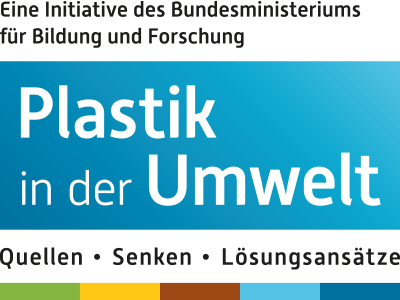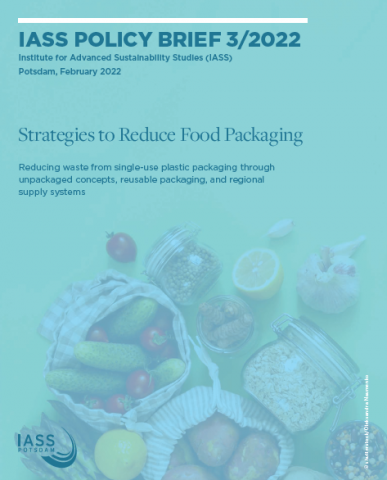Strategies to Reduce Food Packaging. Reducing waste from single-use plastic packaging through unpackaged concepts, reusable packaging, and regional supply systems
Strategies to Reduce Food Packaging. Reducing waste from single-use plastic packaging through unpackaged concepts, reusable packaging, and regional supply systems
The high volume of plastic packaging currently consumed in Germany poses a complex socio-ecological risk. As part of the BMBF-funded ENSURE research consortium, environmental psychologists at the Institute for Advanced Sustainability Studies (IASS) in Potsdam have studied various policy options to promote a reduction in individual consumption of plastic food packaging.
A representative nationwide survey of 1,200 persons conducted by the researchers shows that 92 per cent of the interviewed consumers consider plastic waste in the environment a threat to the preservation of our natural resources and the foundations of life. Despite this widespread awareness, the consumption of plastic packaging continues to grow: In 2018, Germany generated over three million tonnes of plastic packaging waste; more than double the amount produced in 1997.
The findings of the ENSURE project indicate that consumers are willing and indeed wish to reduce their consumption of plastic packaging; however, they are hindered by personal and structural barriers. Political action is needed to break down these barriers to change and support consumers in their efforts. This IASS Policy Brief presents three strategic policy recommendations that could help reduce the consumption of packaging in daily life. Following an outline of the broader context and key issues, these three recommendations are explained in detail. In conclusion, the authors highlight the need for a systemic approach to the reduction of plastic packaging.
-
Wiefek, J., Michels-Ehrentraut, R., Stolberg, A., & Beyerl, K. (2022). Strategies to Reduce Food Packaging. Reducing waste from single-use plastic packaging through unpackaged concepts, reusable packaging, and regional supply systems. IASS Policy Brief, 2022(3).

